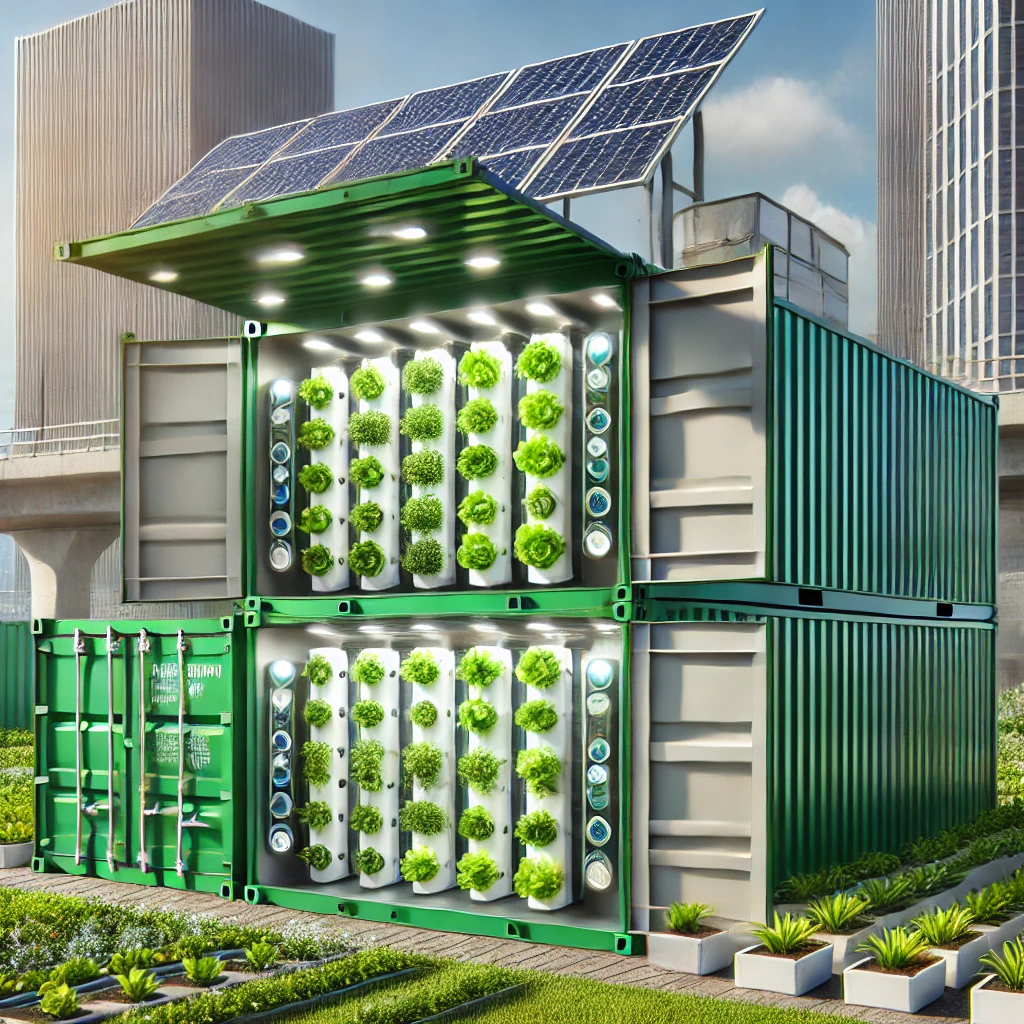Introduction
In the quest for sustainable and innovative agricultural practices, container farming has emerged as a groundbreaking solution. This modern farming method uses shipping containers and other modular units to grow crops in controlled environments. Container farming offers numerous benefits, including space efficiency, environmental sustainability, and the ability to grow crops year-round. In this blog post, we will explore the intricacies of container farming, its benefits, challenges, and its potential to revolutionize the agricultural industry.
What is Container Farming?
Container farming involves growing crops inside repurposed shipping containers or other enclosed structures. These containers are equipped with advanced technologies such as hydroponics, aeroponics, and climate control systems to create optimal growing conditions. The containers can be stacked vertically, making efficient use of limited space, and can be placed in urban areas, reducing the need for long transportation routes.
Key Components of Container Farming
- Hydroponics and Aeroponics Systems
- Hydroponics: This soilless farming technique involves growing plants in nutrient-rich water. Plants are suspended in a water-based solution that delivers all the necessary nutrients directly to the roots.
- Aeroponics: In this system, plant roots are suspended in the air and misted with a nutrient solution. Aeroponics uses less water than traditional hydroponics and allows for better oxygenation of the roots.
- Climate Control
- Temperature and Humidity: Advanced sensors and control systems maintain the ideal temperature and humidity levels for specific crops.
- Lighting: LED grow lights provide the necessary light spectrum for photosynthesis, simulating natural sunlight. These lights can be adjusted to mimic different times of the day and seasons.
- Automation and Monitoring
- IoT Integration: Internet of Things (IoT) devices monitor various environmental parameters and automate tasks such as watering, nutrient delivery, and climate control.
- Data Analytics: Real-time data collection and analysis help farmers optimize growing conditions and improve crop yields.
Benefits of Container Farming
- Space Efficiency
- Container farms can be set up in urban areas, on rooftops, or in any available space, making them ideal for cities with limited agricultural land.
- Vertical stacking maximizes the use of space, allowing for higher crop yields per square foot compared to traditional farming.
- Environmental Sustainability
- Water Conservation: Hydroponic and aeroponic systems use significantly less water than traditional soil-based farming.
- Reduced Pesticide Use: The controlled environment minimizes the need for pesticides and herbicides, leading to cleaner and safer produce.
- Reduced Carbon Footprint: Locally grown produce reduces the need for transportation, cutting down on greenhouse gas emissions.
- Year-Round Production
- Container farms can operate year-round, regardless of external weather conditions, ensuring a constant supply of fresh produce.
- Improved Crop Quality and Yield
- Precise control over growing conditions results in higher quality crops with consistent yields.
Challenges of Container Farming
- Initial Investment
- The setup cost for container farming can be high due to the need for advanced technology and infrastructure. However, the long-term benefits and returns can offset the initial expenses.
- Technical Expertise
- Successful container farming requires knowledge of hydroponics, climate control, and data analytics. Farmers need to be trained to manage and maintain these systems effectively.
- Energy Consumption
- While LED lighting and climate control systems are essential, they can consume significant amounts of energy. Investing in renewable energy sources such as solar panels can help mitigate this issue.
Case Studies and Success Stories
- Freight Farms
- Freight Farms, a Boston-based company, manufactures and sells container farms equipped with hydroponic systems and climate control technology. Their farms are used by restaurants, grocery stores, and individuals to grow fresh produce locally.
- LettUs Grow
- LettUs Grow, a UK-based startup, focuses on aeroponic container farming. Their systems use 95% less water than traditional farming and can be operated in urban environments, bringing fresh produce closer to consumers.
Future Prospects of Container Farming
Container farming holds immense potential for the future of agriculture. As technology advances and becomes more affordable, we can expect to see a rise in container farms across the globe. This method can play a crucial role in addressing food security issues, reducing the environmental impact of agriculture, and providing fresh produce to urban populations.
Conclusion
Container farming represents a significant shift towards sustainable and efficient agricultural practices. By leveraging advanced technologies and innovative growing methods, container farms can produce high-quality crops in a fraction of the space required by traditional farming. As we move towards a more urbanized world, container farming offers a viable solution to meet the growing demand for fresh, locally grown produce. Embracing this method could pave the way for a greener, more resilient food system.
Connect with us!
Are you interested in starting your own container farm? Research local regulations, explore available technologies, and consider partnering with companies that specialize in container farming solutions. The future of farming is here, and it’s time to be a part of this exciting revolution!
By adopting container farming, we can move towards a more sustainable and efficient agricultural future, ensuring that fresh produce is available to all, regardless of location. Whether you’re an aspiring farmer, a tech enthusiast, or simply someone who cares about the environment, container farming offers a unique and promising opportunity to make a positive impact.

